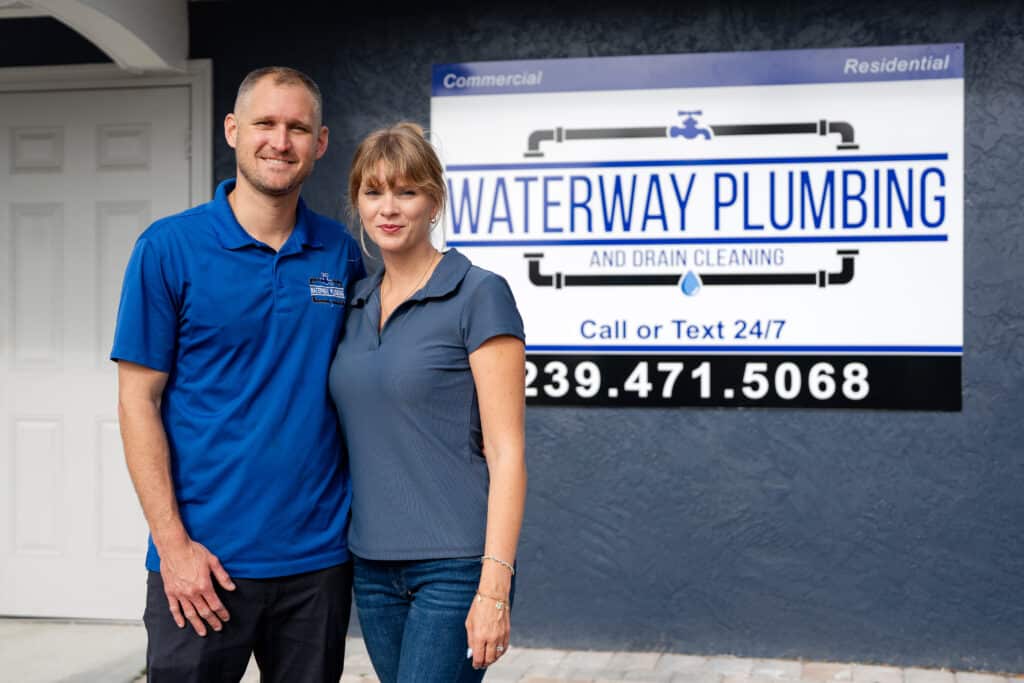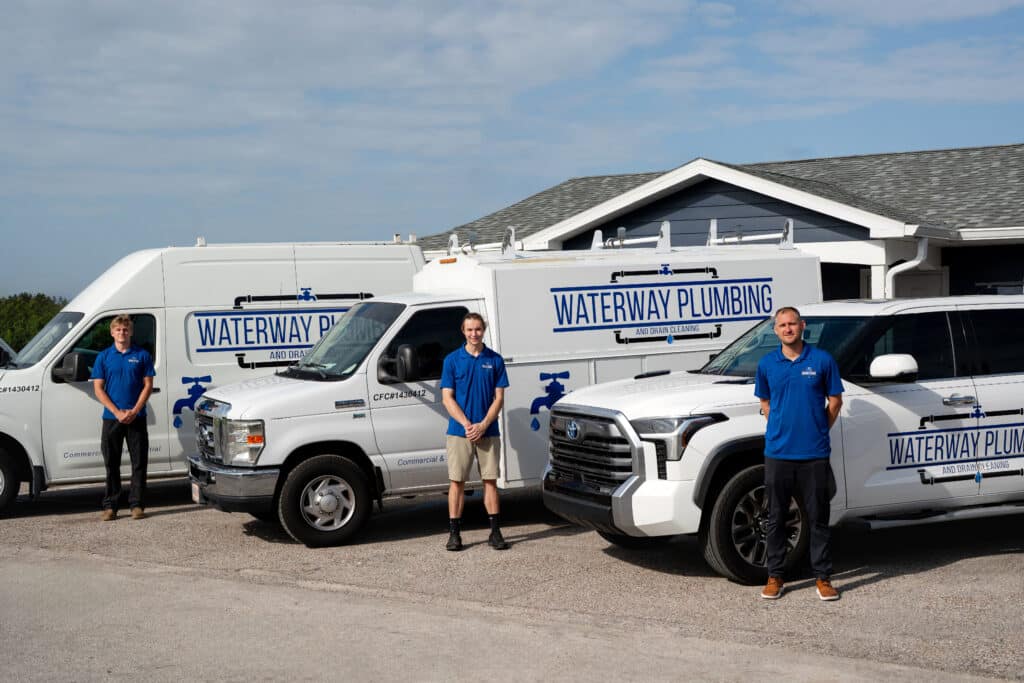Having hot water is something most people rely on every single day, yet it’s easy to forget how important it is until there’s a problem. Whether it’s for showers, doing dishes, or laundry, a working water heater makes home life a lot more comfortable. But like any appliance, water heaters wear out over time and eventually need to be replaced. Knowing when that time is coming can save you from the hassle of surprise breakdowns and water damage.
For homeowners in Fort Myers, water heaters tend to work harder during the warmer months when demand increases or mineral levels in the water put added strain on the unit. Late summer, especially in August when this article is being published, is the perfect time to check in on your system. If you’ve been noticing odd changes in your hot water supply, it could be a sign that your water heater is on its last leg. Let’s look at some of the issues that often lead to a full replacement.
Common Signs That Indicate the Need for Water Heater Replacement
Water heaters don’t often fail with no warning. They usually show signs that something isn’t right before they quit altogether. If you catch these early, you may have enough time to make a plan before you’re stuck with cold water and an emergency repair bill.
These are some of the most common signs that your water heater might be headed toward replacement:
- Inconsistent water temperature: If you’re flipping between freezing cold and scalding hot in the same shower, that’s a clear signal your heater isn’t regulating temperature correctly. It could be due to a worn-out heating element, faulty thermostat, or something more serious.
- Strange noises: Popping, rumbling, or banging sounds coming from your tank often mean sediment has built up inside. When that debris hardens, it causes the system to overheat and struggle to work right. A little sound now and then is normal, but loud or frequent noise should grab your attention.
- Leaks around the tank: Spotting water pooling around the base of your water heater should never be brushed off. A small leak can quickly turn into a bigger one, possibly causing damage to floors, walls, and more.
- Rusty or discolored water: If the hot water coming from your faucets looks rusty or has a metallic smell, your tank might be corroding from the inside. This can affect both water quality and the tank’s structural safety.
- No hot water or running out too fast: When your heater struggles to provide hot water for longer than a few minutes, it could mean the unit is too small for your home’s needs or something inside is breaking down.
Let’s say you notice your morning showers have gone from steamy to lukewarm, even though the settings haven’t changed. You might brush it off as a fluke at first, but if it keeps happening, that’s your water heater waving a red flag. Pay attention to patterns like this. They usually mean something inside the system isn’t working like it should.
Age of the Water Heater
Even if your water heater doesn’t show obvious signs of a problem, its age alone could be a clue that it’s time to replace it. Most traditional tank-style water heaters last about 8 to 12 years, depending on how well they’ve been maintained and the quality of the water running through them. If yours falls in that range or older, it’s smart to start thinking about an upgrade, especially if any other warning signs are popping up.
Older units often lose efficiency and become more prone to breakdowns. Even if it looks fine on the outside, the inside parts could be worn down or corroded. As these problems pile up, they can cause your heater to work harder, costing you more on your energy bill and not delivering the comfort you expect.
Here’s why age matters:
- Heaters over 10 years old are at higher risk for leaks and failures
- Older parts may no longer be compatible with newer components
- The tank may be full of sediment, which cuts down on efficiency
- Safety features in newer models may not be present in older ones
If you’re unsure of your water heater’s age, take a look at the serial number on the tank. Most manufacturers include the manufacturing date in that code. Once you know how old it is, you can make a better decision about its future. Knowing when your unit is reaching its final years means fewer surprises and more control over your home’s comfort.
High Energy Bills
When you notice a spike in your monthly bills and haven’t changed your usage habits, your water heater might be the culprit. A malfunctioning unit often forces itself to work overtime in order to heat the same amount of water, pushing up your energy costs. This overexertion not only impacts your wallet but also shortens the lifespan of the water heater.
Keeping an eye on your energy use would be a smart move. Think about starting a log to track your monthly usage and costs. This will help you spot issues quickly. If your bills are consistently higher and you can’t pin it down to anything else, consider the age of your water heater. If it’s an older model, it might be time to switch to a newer, more efficient version that will lower your energy use and give you a more stable hot water supply.
Older water heaters often lack the improved insulation and efficient heating systems of modern models. Over time, sediment buildup and part wear will demand more energy just to maintain the same output. That added stress shows up in your energy bill and is another sign it might be time to move on to a better model.
Frequent Repairs and Maintenance
Repairing your water heater once in a while is normal. But if you’re constantly calling your plumber for problems like leaks, poor heating, or strange noises, you might be throwing money into a sinking ship. Think about how often you’ve paid for service visits over the past year. If it’s more than two or three times, those costs start to add up.
Here’s how to weigh your costs:
- Total repair costs: Keep track of what you’ve spent on repairs over the last year or two
- Compare it to a new unit: Look into the cost of water heater replacement and installation from a professional
- Estimate future savings: A newer unit can offer better performance, reliability, and lower energy bills
Once you’ve done the math, it usually becomes clear when repairs stop making sense. Replacing the water heater can rescue your wallet from constant service fees and give you back reliable hot water.
Another factor is convenience. Constant repairs interrupt daily routines in your home and can become frustrating. A new heater means peace of mind and fewer unexpected problems.
Keeping Your Hot Water Flowing
Living in Fort Myers means you rely on your water heater all year long. Whether it’s for cold morning showers in the winter or the high demand during warm summer months, your hot water system has to keep up. That’s why now, as we head toward the end of summer, it’s a great time to assess how your heater is doing.
The key to avoiding surprise breakdowns is paying attention to the warning signs. Inconsistent water temperature, higher bills, age, and ongoing repairs are all signs a water heater may be ready for replacement. Ignoring these signals tends to lead to more expensive emergencies down the road.
Replacing your heater before it fails completely gives you more control over the cost and process. Instead of dealing with emergency calls and cold showers, you get to plan out the installation and upgrade to a system that meets your home’s size and water usage better.
By recognizing when your water heater needs attention, you can stay ahead of any major issues and keep hot water flowing like it should. That means better comfort, fewer hassles, and a more efficient system fit for your home.
Whether you’re dealing with high energy bills, ongoing repairs, or a system that’s outlived its lifespan, replacing your water heater before it fails can help you avoid unexpected issues. If you’re considering professional help for water heater installation in Fort Myers, Waterway Plumbing & Drain Cleaning is here to deliver reliable service and long-term comfort for your home.




